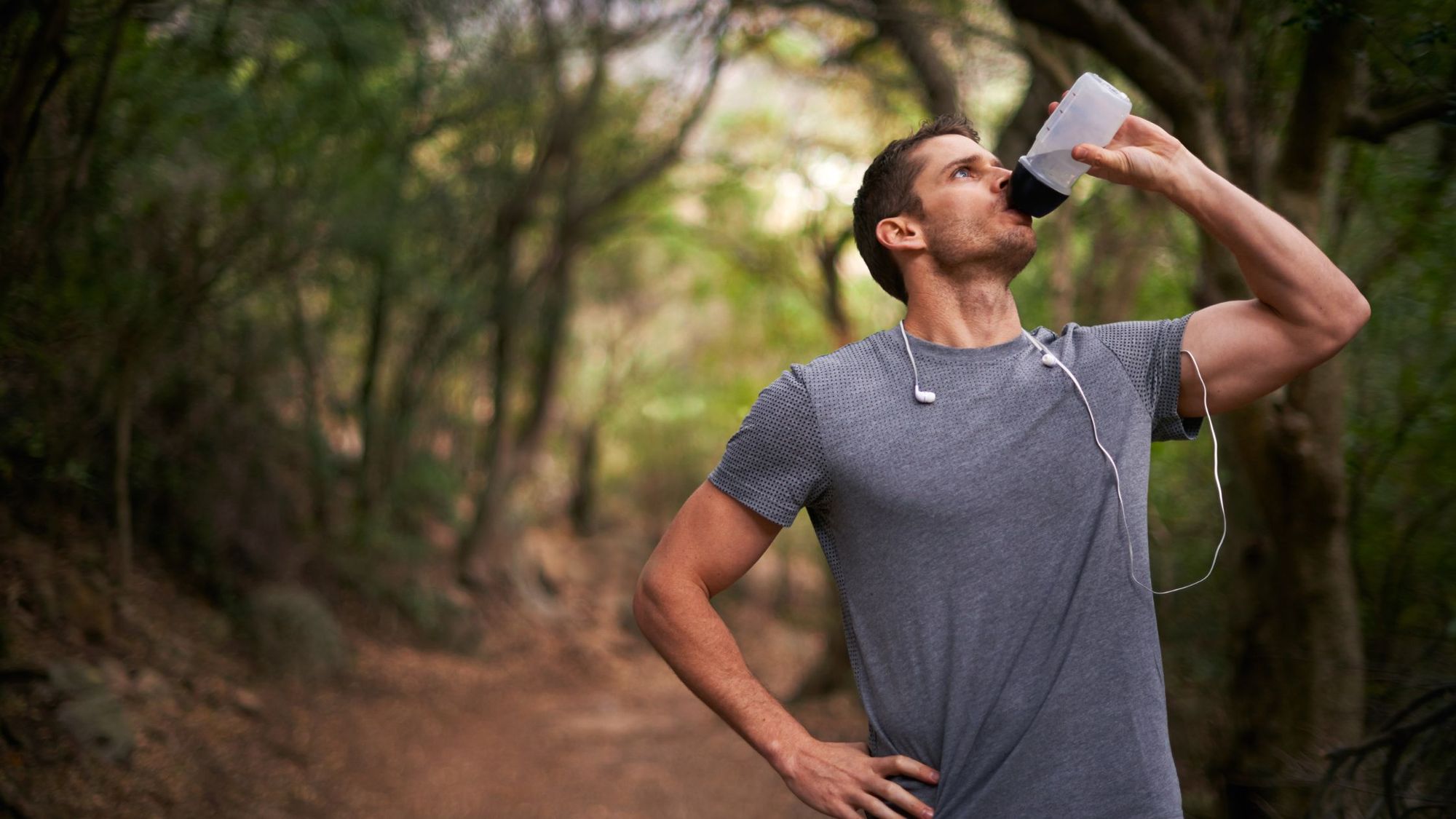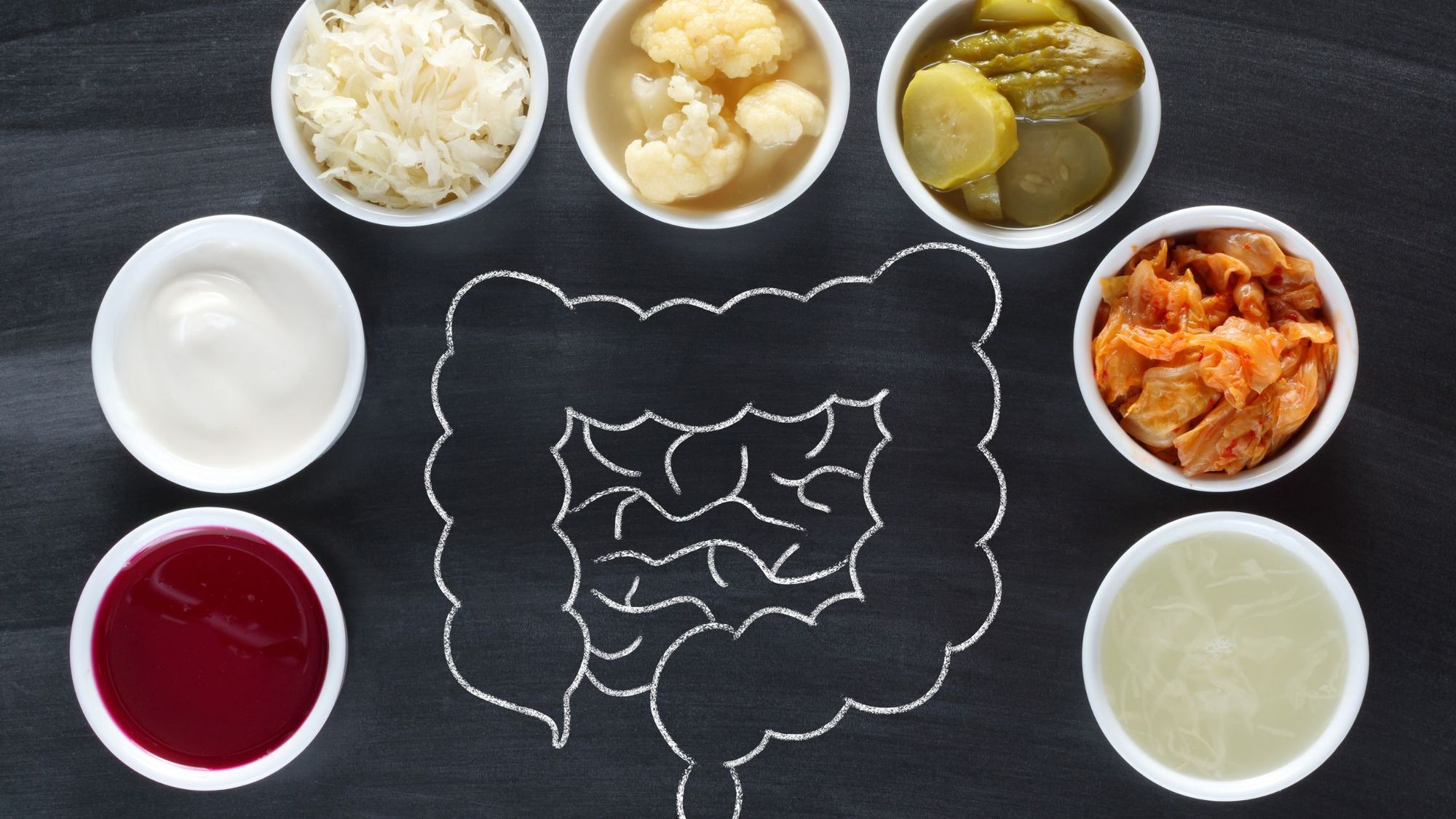
Travelling is enriching and rewarding, but the stress of it can really take a toll on your body. It can be especially tough to keep your gut healthy while you travel. Between the irregular eating hours, circadian rhythm adjustments, and the sometimes unfamiliar ingredients, many travellers experience bouts of constipation, diarrhea, irregularity, gas, bloating, and other symptoms associated with an imbalance in your gut.
Your gut needs an abundance of microflora to function optimally. Microflora are the organisms, including bacteria, that live in your intestines. They are responsible for breaking down the foods you eat and making biotin and vitamin K. The environment your microflora lives in is called your microbiome.
Dysbiosis is a condition that occurs when your microbiome becomes unbalanced. As too much of one bacteria starts to take over, the microbiome becomes less diverse. Along with genetic factors, many environmental factors can contribute to dysbiosis. A diet that is high in sugar, for example, can cause certain bacteria to multiply rapidly in your gut. A low-fibre diet can cause a shortage of bacteria that produce short-chain fatty acids.
Unfortunately, dysbiosis can occur while on the road because it can be hard to stick to a healthy diet while travelling. Symptoms of dysbiosis include gas, cramping, constipation, diarrhea, inflammation, fatigue and low-energy.
Any of these symptoms can easily throw a wrench into your travel plans, so it’s important to do what you can to keep your gut happy while you’re travelling.
Read on to discover some easy ways you can help your microbiome thrive and keep your gut healthy while travelling.
Eat Lots of Fibre
It’s important to incorporate plenty of fibre into your diet both on and off the road. Fibre helps you pass stool and lowers your risk of developing bowel cancer. Fibre also helps keep your cholesterol levels healthy, thereby reducing your risk of developing heart disease and having a stroke.
Increasing your fibre intake while on holiday can help keep your gut healthy while travelling and can help shorten the length of travel-related constipation, a symptom that sometimes occurs when your routine is suddenly throw off. Be sure to include both soluble and insoluble fibre in your travel diet.
Insoluble fibre adds bulk to your stool and helps increase the speed of digestion. Some examples of insulble fibre that can keep your gut healthy while travelling are whole grains, seeds and vegetables.
Soluble fibre forms a gel-like substance that sticks to your intestine and helps with nutrient absorption. You can get soluble fibre from food sources like peas, beans, oats, apples and citrus fruits.

Hydrate
When you become dehydrated, your body has no fluid to use to hep move food through your body. Symptoms like constipation, gas, and uncomfortable bloating will soon follow. Not only that, but both dehydration and constipation contribute to low energy levels and feelings of heaviness and lethargy. When you’re experiencing constipation due to dehydration, you likely won’t feel like doing much of anything on your holiday.
Staying hydrated can help you keep your gut healthy while travelling. Keep in mind that if you are visiting a warm, tropical destination or are partaking in strenuous activities like hiking, you’re going to need to be vigilant of how much water you drink.
You may also want to consider adding electrolytes to your water bottle to help you stay hydrated. Natural options like coconut water, ginger and fruit-infused waters can help ensure you are replenishing the electrolytes you lose when you sweat, something water on its own can’t do.

Take Probiotics
Probiotics are live bacteria that aid digestion. They help keep your microbiome healthy and diverse by restoring it if it’s been thrown off. Medicine, diet, stress and illness can disturb your microbiome, so taking probiotics, either preemptively or after a bout of digestive distress, may help you feel better and keep your gut healthy while travelling.
Probiotics can be purchased and taken in pill form, or you can find natural sources of probiotics in foods like fruits and vegetables, and in foods that have been fermented.
Some examples of probiotic-rich foods are
- Yogurt
- Kefir milk
- Cottage cheese
- Pickles, sauerkraut or kimchi
- Miso paste
- Watermelon
- Almonds
- Grapefruit
- Custard apples
- Bananas
Choose Your Food Vendors Wisely
One of the best parts of travelling is getting to sample all kinds of local delicacies prepared by people who have been perfecting their recipes for generations. Simple food stalls that are commonly found in tourist destinations like South America and South East Asia are a real treasure, and two food stalls in Singapore and Thailand even have Michelin stars.
However, to keep up with demand, food stall cooks will sometimes partially pre-cook their meat, then re-cook it to order. Meat that has been partially cooked and then left to sit, even in the fridge, will still have bacteria living all over it. Salmonella and E.coli are two bacteria that grow on meat that make you very sick if you consume it. Salmonella food poisoning can last up to a week without antibiotics, and food contaminated with E.coli can leave you with symptoms for over 10 days.
Make sure you’re lining up at a food stall that is handling its meat safely. If you see pre-cooked meat or raw meat that has been left out, consider checking out another stall.
Eat Regularly
It can be tough for your body to adjust to a new rhythm when you travel. The further you go, the longer it takes to start feeling normal. Even if you don’t feel overly hungry, eating regularly can help your body get used to its new routine. Snacking on foods that are high in fibre and have a high water content like apples, cucumbers, watermelon and berries can help you stay hydrated in addition to feeling satiated and keep your digestive system functioning well.
Avoid fatty, high-processed foods, excessive sugar and artificial sweeteners, especially if you’re still feeling the effects of jet lag. These types of foods damage your microbiome and can make your jet lag last longer.
Keep Moving
Incorporating a bit of movement into your day can help keep the digestive process running efficiently and keep your gut healthy while travelling.
As previously mentioned, travel constipation can occur when your body’s routine is suddenly interrupted. If your travel plans involve an early flight, that change can be enough to trigger travel constipation before you’re even in the air. Make sure to stay hydrated as you make your way to your destination. Ginger or mint tea can help stimulate your bowels and keep you regular as you travel and in the coming days as you adjust to your holiday routine.
Movement such as walking, stretching or swimming can help stimulate digestion as well. Take walks around the airport or up and down the aisle of the plane when you can on travel day. If you’re still suffering from traveller’s constipation a few days into your trip, a short walk can stimulate digestion. Swimming, stretching and yoga can also help.
Get Back on a Regular Sleep Schedule ASAP
Researchers have discovered that changes to your sleep schedule have a large impact on your microbiome. Certain types of bacteria are more active during different parts of the day, and sudden changes to your circadian rhythm can ‘confuse’ bacteria and throw off the rhythm of their activity.
Be sure to get plenty of rest leading up to your trip, avoid taking sedatives or stimulants,
and try to get synced up with your destination’s time zone as soon as you can. Preventative steps can help keep your gut happy and healthy while travelling.
Above all else, enjoy your travels and do your best to stay relaxed. Travelling can be as stressful as it is enjoyable, and stress can alter the actions of the neurotransmitters in your bowel and consequently disrupt your microbiome. Try to find time to rest during your travels, whether that’s down time at the beach or a local yoga class.
References:
- https://www.frontiersin.org/articles/10.3389/fnut.2020.583608/full#:~:text=Our%20results%20indicate%20that%20the,Campylobacter%2C%20Flavonifractor%2C%20and%20Erysipelatoclostridium.
- https://www.cancersa.org.au/prevention/lifestyle-factors/diet/how-dietary-fibre-cuts-your-cancer-risk/#:~:text=Dietary%20fibre%20helps%20reduce%20colorectal,the%20intestine%20to%20become%20cancerous.
- https://www.nhs.uk/conditions/probiotics/#:~:text=Probiotics%20are%20thought%20to%20help,irritable%20bowel%20syndrome%20(IBS).
- https://www.insider.com/jay-fai-michelin-star-bangkok-street-food-stall-review-price-2022-8#as-a-street-food-enthusiast-i-was-excited-to-try-out-the-much-hyped-restaurant-i-took-a-15-minute-car-ride-from-my-hostel-in-chakkrawat-and-found-a-line-of-about-30-people-queued-up-at-around-2-pm-no-photo-signs-were-plastered-on-barriers-that-shielded-junsuta-from-onlookers-4
- https://asm.org/Articles/2021/May/Bacterial-Circadian-Rhythms-From-Lakes-to-the-Gut#:~:text=The%20identification%20of%20circadian%20rhythmicity,crashes%20in%20another%20(night).
- https://www.stress.org/how-is-stress-linked-with-constipation





